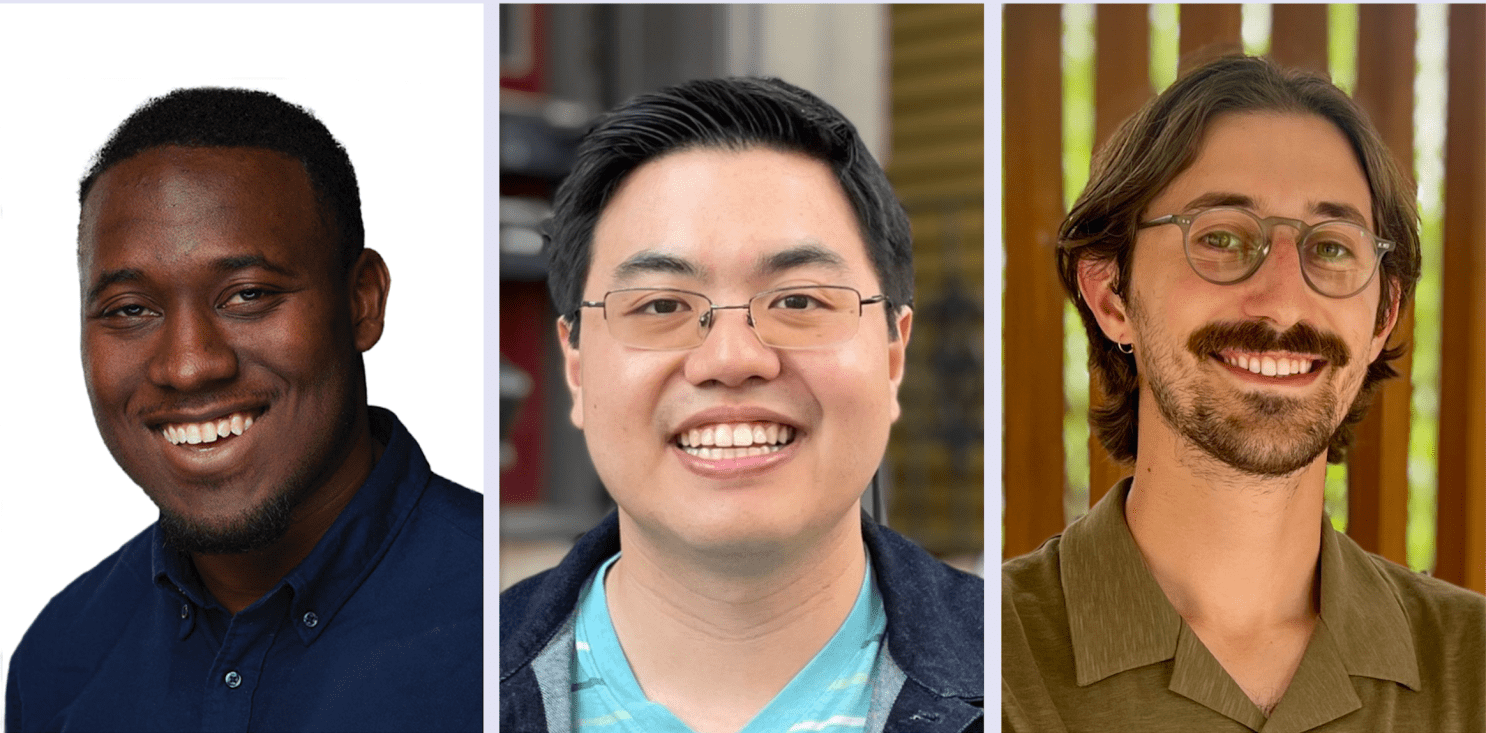Kianté Brantley, Yilun Du and Michael Albergo to join the Kempner Institute

The Kempner Institute’s new Institute Investigators are (left to right) Kianté Brantley, Yilun Du and Michael Albergo.
The Kempner Institute announced today the appointments of Kianté Brantley, Yilun Du and Michael Albergo as Kempner Institute Investigators. All three researchers, who will also hold faculty positions at the Harvard John A. Paulson School of Engineering and Applied Sciences (SEAS), are leaders in the quickly-advancing field of intelligence.
“We are thrilled to welcome Kianté Brantley, Yilun Du and Michael Albergo to the Kempner,” said Sham Kakade, co-director of the Kempner Institute. “These researchers are doing tremendous work to advance our understanding of underlying mechanisms of AI and machine learning, and to push the frontiers of what is possible in the field.”
The three new institute investigators will play key roles in helping to shape and advance the Kempner’s research program and will begin their appointments at the Kempner and SEAS over the next three years. Kianté Brantley begins his role as Kempner Institute Investigator and assistant professor of Computer Science in July 2024; Yilun Du begins in July 2025 as Kempner Institute Investigator and assistant professor of Computer Science at SEAS; and Michael Albergo joins in July 2026 as Kempner Institute Investigator and assistant professor in Applied Mathematics at SEAS.
About the new Institute Investigators
Kianté Brantley’s research focuses on addressing the misalignment issues that machine learning systems based on foundation models often encounter. He aims to mitigate these issues by studying algorithms that can learn from interactive feedback data collected from external sources. His specific areas of interest include reinforcement learning, imitation learning, and natural language processing. Brantley joined the Kempner Institute and SEAS after completing his postdoctoral associate work at Cornell University, where he worked with Thorsten Joachims. He completed his Ph.D. in Computer Science at the University of Maryland College Park, advised by Dr. Hal Daumé III.
Yilun Du’s research focuses on using generative AI to develop intelligent robots that can effectively generalize unseen scenarios and tasks. His work has focused on compositional generative modeling, where existing generative models can be combined and repurposed for new tasks, enabling systems to generalize areas that are not well covered in the data distribution. His work has illustrated how such systems can be applied to settings in vision, robotics, language, as well as more broadly in scientific settings such as protein design or material synthesis. Du will join the Kempner Institute and SEAS from MIT, where he completed his Ph.D.
Michael Albergo studies methods in machine learning and numerical analysis to accelerate discovery in the physical sciences and the study of complex systems. He also seeks to use perspectives in statistical physics to improve our understanding of the mechanisms underlying the rapidly growing field of generative modeling, and to develop statistically robust machine learning techniques that are adapted to their problem domain. Before starting his position at the Kempner Institute and SEAS, Albergo will be a junior fellow at the Society of Fellows here at Harvard. He received his Ph.D. from New York University in Physics.




